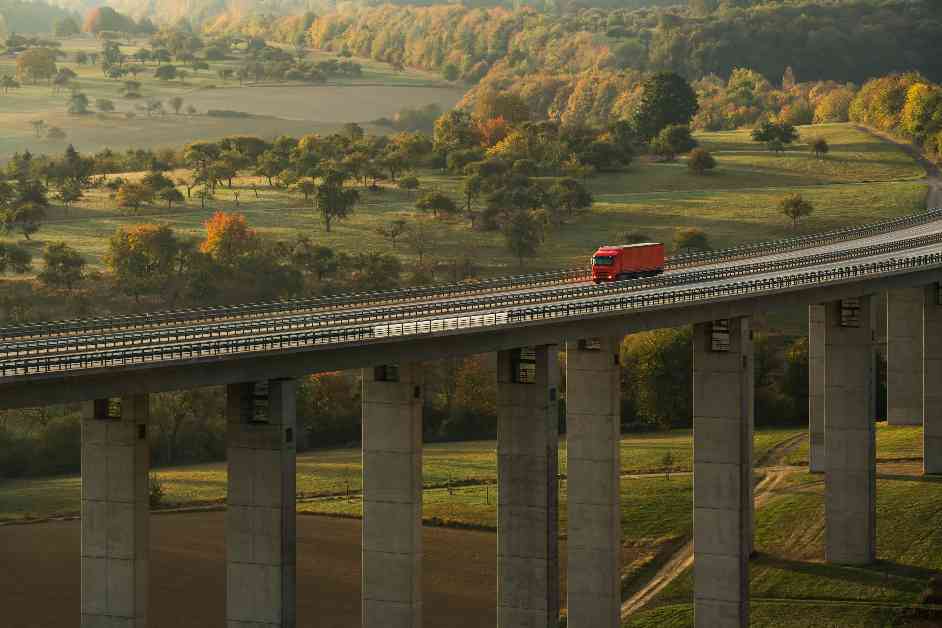Budget 2025: A New Approach to Taxation for Growth and Sustainability
As the Finance Minister prepares to unveil the Budget 2025, there is a significant shift in focus from the traditional revenue-raising areas of tobacco, alcohol, and fuels to a more innovative approach aimed at promoting growth, sustainability, and public health. The unprecedented budget surpluses in recent years have provided the government with a unique opportunity to use tax levers to address the challenges of the future without relying on the “old reliables.”
Sustainability Initiatives
One of the most pressing issues facing governments worldwide is the impact of climate change. Ireland has set a target of achieving climate neutrality by 2050, and the Budget 2025 presents an opportunity to accelerate the transition to green technologies and renewable energy. Incentives for businesses and households to adopt sustainable practices can be increased, with a focus on promoting the switch to electric vehicles.
The ambitious targets outlined in the Climate Action Plan, such as having 175,000 electric passenger cars on the road by 2025, may require additional support to be achieved. The Minister could consider expanding the eligibility for Vehicle Registration Tax (VRT) relief to encourage more consumers to purchase electric vehicles. Additionally, reducing or eliminating the annual motor tax for battery electric vehicles could further incentivize their adoption.
To encourage more people to choose environmentally friendly modes of transportation, the government could introduce a reduced rate of Value-Added Tax (VAT) on bicycles and electric bicycles. This measure aligns with the EU VAT Directive and could help promote sustainable mobility options.
Promoting Competitiveness
As an island nation with an export-driven economy, Ireland’s competitiveness relies heavily on the efficiency of its logistics sector. When considering taxation on motor fuels, the government must take into account the needs of essential users such as haulage and public transport operators. The Freight Transport Association Ireland has called for measures to mitigate the impact of increasing fuel taxes on these sectors, emphasizing the importance of cost-effective trading for competitiveness.
To support the freight and logistics industry, the government could refrain from raising diesel fuel duty for commercial operators and review the existing diesel rebate scheme to better serve the needs of heavy goods vehicle and public service vehicle operators. These measures could help alleviate the financial pressures faced by essential transport providers and ensure the continued competitiveness of the sector.
Health-focused Taxation
While excise duties on traditional tobacco products are expected to increase, there is a growing focus on taxing vaping products following the recent ban on disposable vapes. A targeted taxation regime for e-cigarettes and heated tobacco products is anticipated, with rates likely to be set per milliliter of e-liquid. This move aligns with trends in other EU Member States and aims to regulate the rapidly evolving vaping market.
Value-Added Tax Considerations
The hospitality industry continues to advocate for a reduction in the VAT rate from the current 13.5% back to the pre-pandemic rate of 9%. Despite industry appeals citing the high VAT burden compared to other EU countries, there appears to be limited support for a reduction among policymakers. The sector faces increased costs due to inflation, with the restaurant industry in particular feeling the strain according to the Restaurant Association of Ireland’s pre-budget submission.
While the government may not be inclined to reduce the VAT rate for hospitality in the upcoming budget, the industry’s concerns highlight the need for ongoing dialogue and collaboration to address economic challenges. Indirect taxes can be powerful tools for driving economic and behavioral change, and the current fiscal strength presents an opportunity for strategic tax adjustments that support sustainable growth.
In conclusion, Budget 2025 represents a pivotal moment for Ireland to transition from reliance on traditional revenue sources to a more forward-thinking approach to taxation. By leveraging tax policy to promote sustainability, competitiveness, and public health, the government can pave the way for a resilient and prosperous future. The decisions made in this budget will shape the country’s economic landscape for years to come, emphasizing the importance of thoughtful and impactful fiscal measures.












